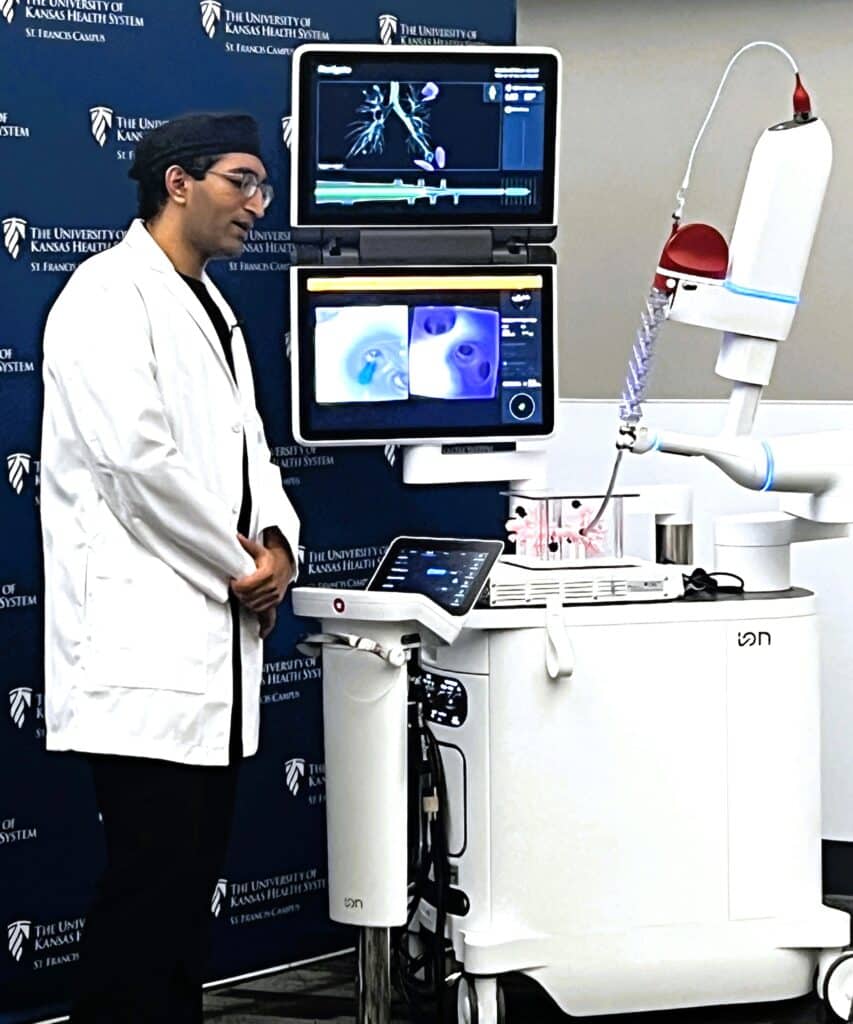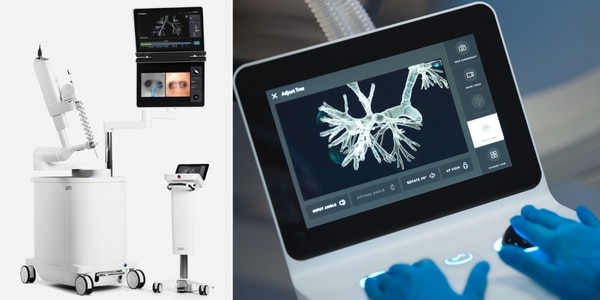
Patients at The University of Kansas Health System St. Francis Campus now have access to one of the most advanced tools available for detecting lung cancer. A new robotic-assisted bronchoscopy system, known as Ion, is now in use by our pulmonology team—offering earlier and more precise diagnosis of lung cancer than ever before.
Developed by medical technology company Intuitive, Ion allows providers to navigate deep into the small, narrow airways of the lung with greater accuracy. Its ultrathin, flexible robotic catheter can reach all 18 segments of the lung—including the outermost areas where many lung cancers begin. This means that even tiny nodules smaller than one centimeter can now be biopsied with confidence.
“This new technology allows us to get farther out to areas where normal bronchoscopes can’t reach and find smaller nodules earlier,” said Dr. Ali Nayfeh, pulmonologist. “With robotic assistance, I can precisely navigate the scope and perform delicate biopsies with more control, reducing the chance of human error. That’s a game-changer for diagnosing cancer at its earliest stages.”
Unlike traditional bronchoscopes, which are limited to larger airways, Ion’s reach and precision improve both the accuracy and safety of lung biopsies. That level of detail matters—because detecting lung cancer early, when it’s most treatable, can significantly improve outcomes for patients.
This breakthrough is part of our ongoing commitment to offering advanced care, close to home. If you or a loved one has been referred for a lung biopsy or is at risk for lung cancer, ask your provider about our lung cancer screening program and the benefits of robotic-assisted bronchoscopy.
Lung Cancer Screening
At St. Francis, we’re leading the way in lung cancer screening across the region—driven by a strong culture of delivering exceptional, patient-centered care. Our multidisciplinary team, including radiologists, pulmonologists, thoracic surgeons, oncologists, and primary care providers, collaborates closely from screening through treatment. This coordinated, personalized approach sets us apart and ensures every patient receives high-quality care at every stage—raising the standard for lung cancer screening.
Who Should Get Screened
If you’re 55–77 and have a history of heavy smoking, even if you quit within the past 15 years, you may qualify for a low-dose CT scan to screen for lung cancer.
Don’t Wait – Act Now
Talk to your primary care provider about a referral to the St. Francis Lung Screening Program. Lung cancer often has no symptoms until it’s advanced, but early detection through screening can save lives.
Need a primary care provider?
📞 Call 1-833-4NEWDOC (463-9362)
🌐 Visit KUTopeka.com/Services/Primary-Care

